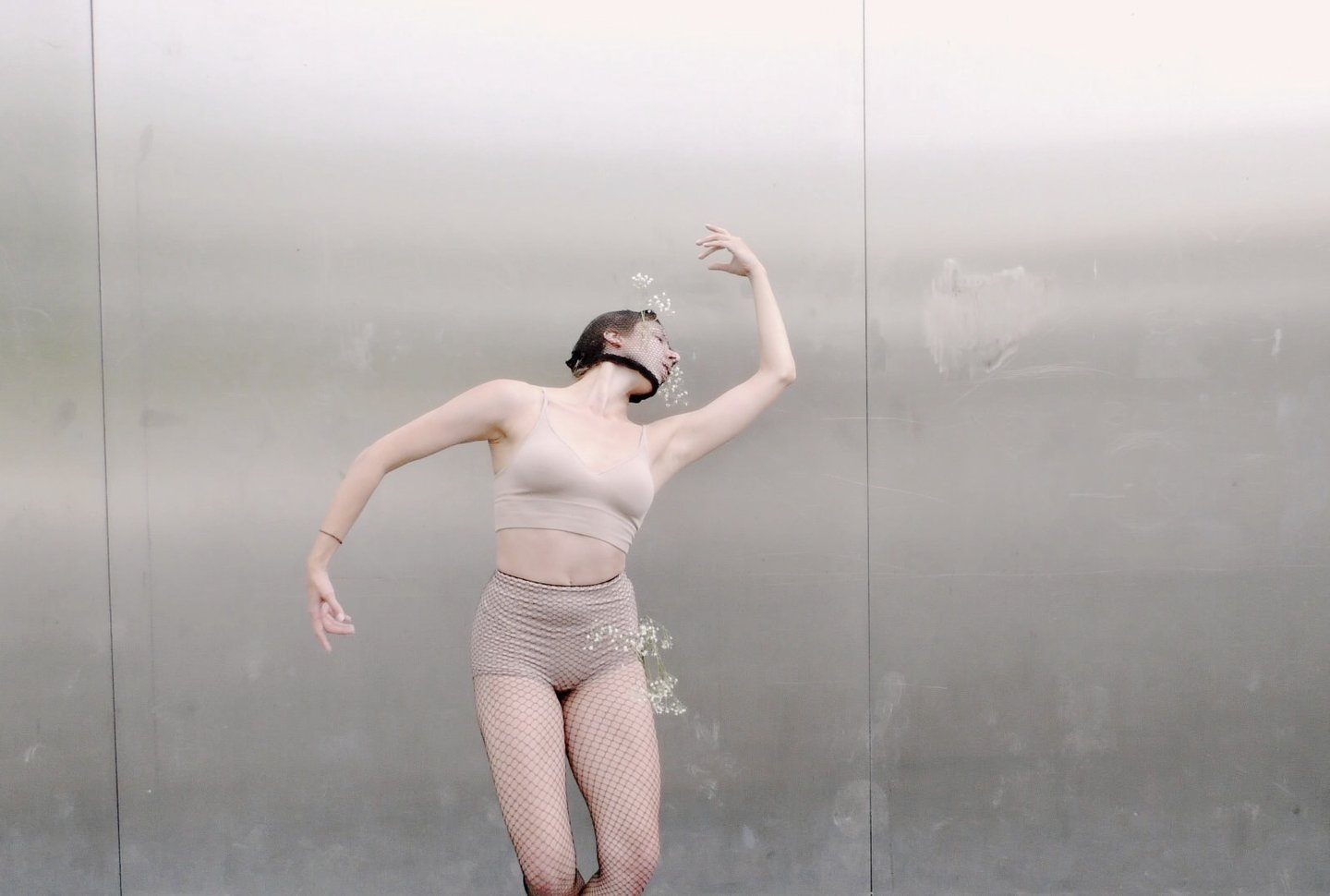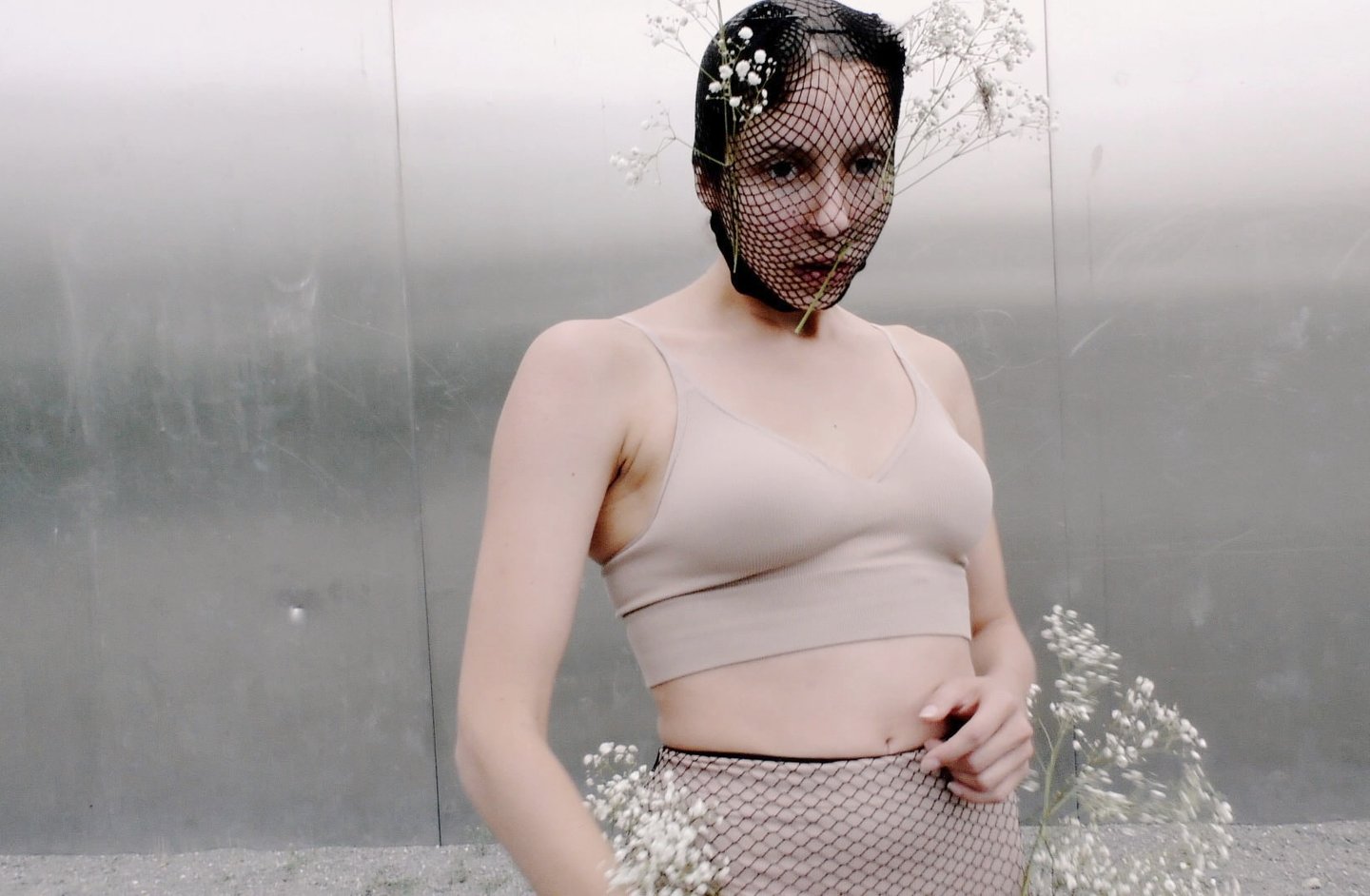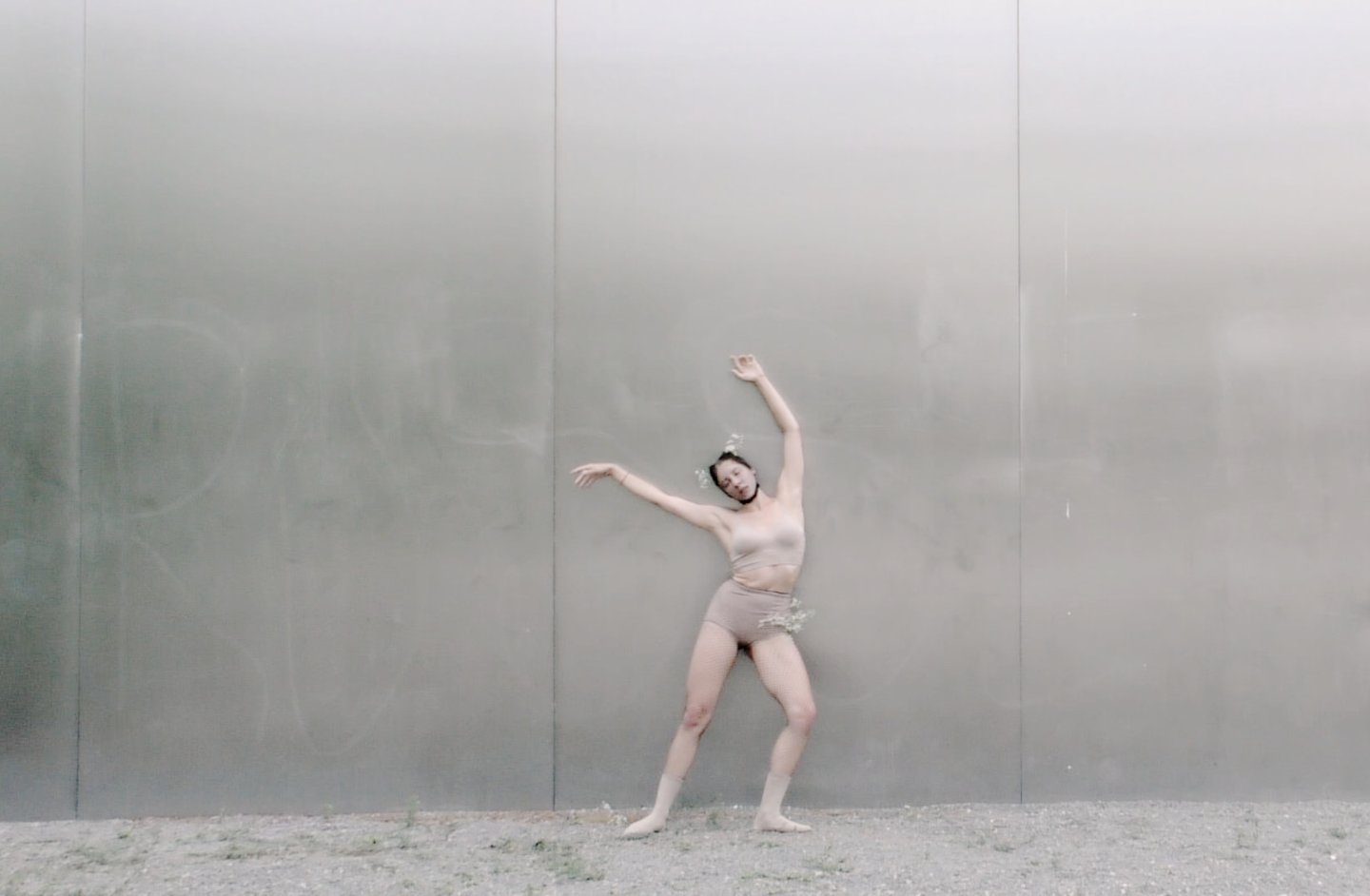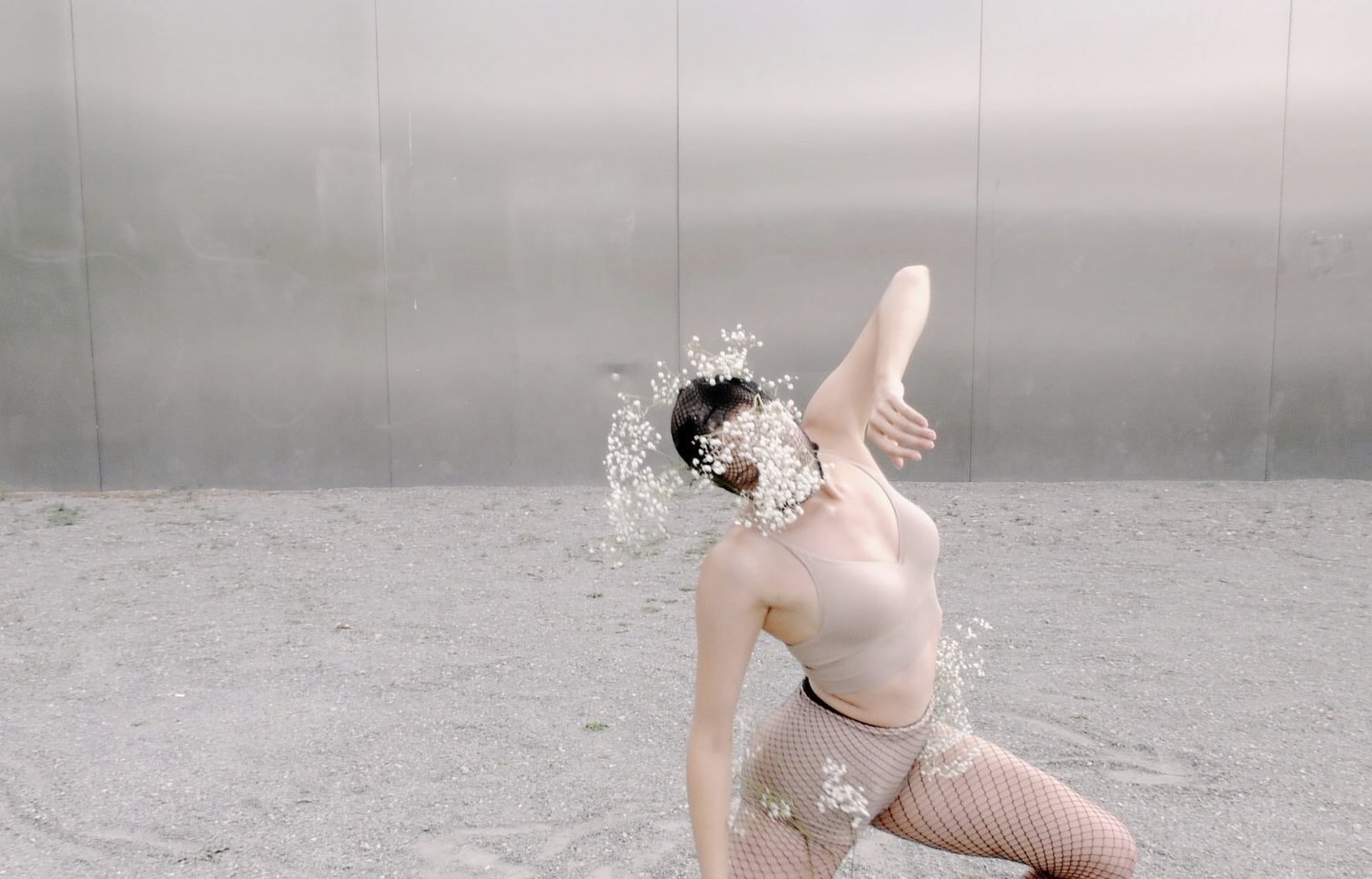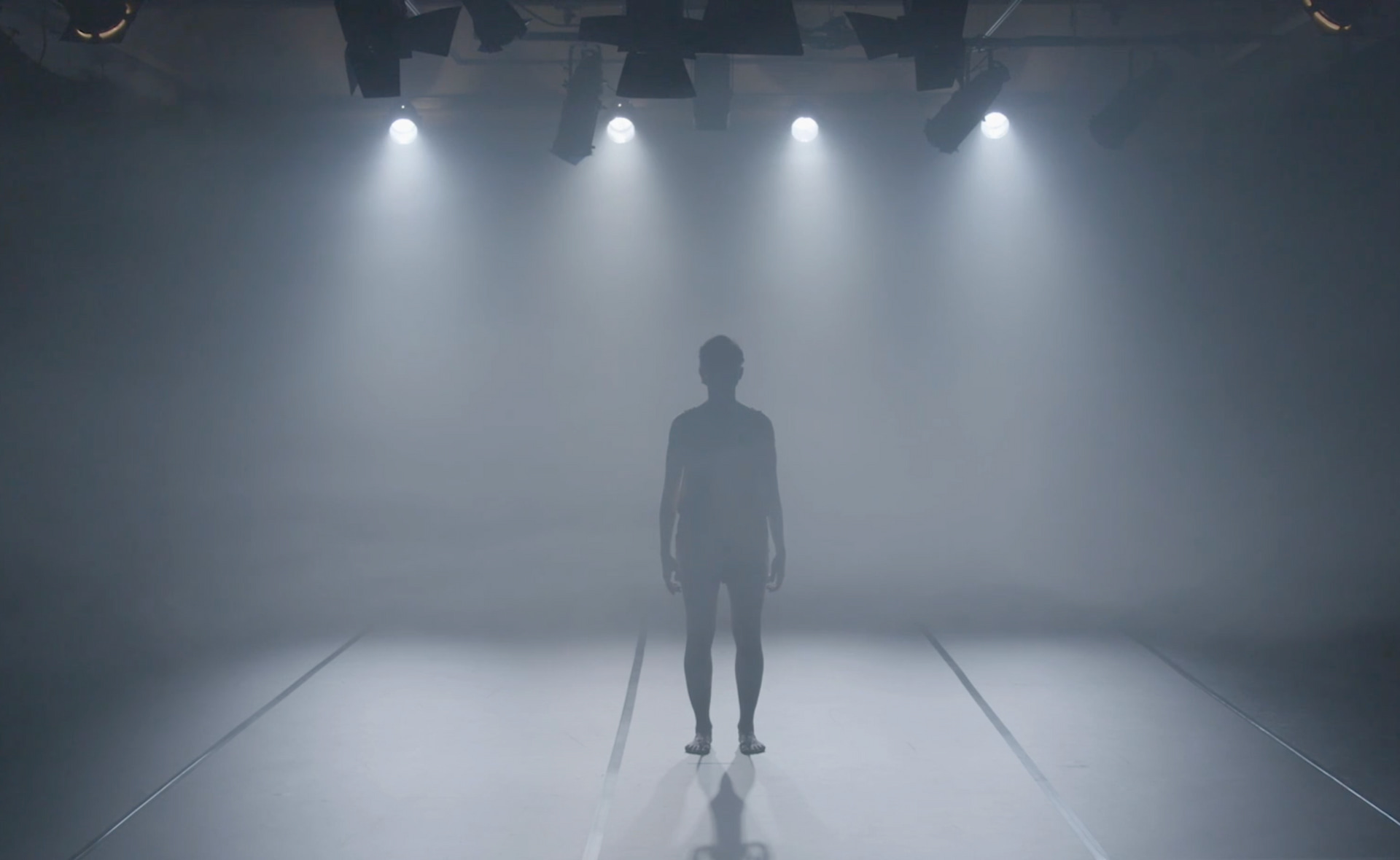
Lingua Materna (2024, HD video, 7'54")
Language: Croatian (English Subtitles)
A Poetical Digital Story by Tina Bikic
Inspired by the poetry of Danijel Dragojević (quoted verses appear in italics in subtitles)
Credits
Filmed, Written, Directed, Narrated, Edited by Tina Bikic
Cast
In the role of the narrator's double
Julija Kaulinyté - dance artist (Berlin Wall, present choreography)
Sissj Bassani - dancer (Studio, past choreography)
Choreography
Elisa Sbaragli (Studio choreography "Besides Me")
Light Design & Interaction: Fabio Brusadin
Costume: Tosca Giraldo
Music
Berce mon coeur — Jean Toba. Free Music Archive — Licensed under CC BY-SA 4.0
Adrift No.2 — Daniel Birch. Free Music Archive — Licensed under CC BY-NC-ND 4.0
Space
Filmed at: Berlin Wall Memorial, Berlin, Germany
Production
Producer: Mediagrammi e.V.
Supported by the Creative Europe Programme, European Commission (DanceMeUP 607384-CREA-1-2019-1-IT-CULT-COOP1.
LINGUA MATERNA
ABOUT
About
Lingua Materna is a poetical digital story on how we exist within our mother tongue and within the space of translation. Intertwined, as we hear our first language singing, we remember how to dance. How do we exist in other languages? Doesn’t translation get lost between the lines, between inhalation and exhalation? The text is interwoven with the verses of Danijel Dragojević, one of Croatia’s most acclaimed contemporary poets, deepening the exploration of language as both homeland and exile.
Caught between language and memory, the figure in the film is a dancer who, through movement, embodies the tension of untranslatability. She moves through two visual worlds. The first is the space of memory: a blue, fog-lit studio where childhood dissolves into fragments of the mother tongue. Then she passes into an industrial space of imposing proportions, the present in exile, where language simultaneously limits and transforms her. Navigating memory and language through movement, the figure translates emotions into a cinematic experience, a poetic dance of longing and the desire to belong.
Process and Methods
The concept for the film began as an experiment, in which the dancer embodies a character, narrator's double within the story. For this work, I decided to write and narrate in Croatian, my first language. This artistic choice was made to emphasize the tension between the intimacy of the mother tongue and the exploration of whether one can ever live authentically through translation. Since moving to Berlin, I have produced my works in English, but here I returned to Croatian as a way to reflect on the fragmentation of identity and belonging in language.
The character in the story remains the narrator's imaginary double, only this time she carries more meaning. Now, she is the visual embodiment of the image of my first language. Through aesthetic choices, I envisioned her as a statue-like figure, idealized in appearance, designed to be admired. This choice reflects on how I imagine my language visually, as home to something admirable.
Through montage, I constructed a dialogue between two temporalities: past recordings of the dancer in the studio, who gradually loses vitality, connecting this with the impossibility of preserving one’s own language, and the present figure who continues dancing forward. But for how long? As the film returns to its refrain, the dancer removes her mask, revealing a moment suspended between resignation and transformation, leaving us suspended in a question that even she herself cannot fully answer.
Reflection
I felt the weight of the untranslatable. At that very moment, it becomes possible to articulate ourselves only through our first language. When my own words begin to fade, I begin the process of poetic borrowing. For me, this choice is not accidental: Dragojević, although considered the greatest Croatian poet, resisted institutional recognition and avoided political labeling, a stance that reflects my own search for belonging beyond imposed identities. I see this act of borrowing Dragojević’s verses as an extension of my own voice, not only to explain what cannot be said, but also as an act of playfulness through which I try to find the way home.
The second layer of meaning reflects the poet, Danijel Dragojević, who for me represents the notion of the highest literary identity and my own belonging, tied not to my country as such, but above all to my first language. That is why, for writers and poets, the day they begin to write and speak in another language is the day they feel deeply that they have left their home. Using memory as my constant theme, I introduce his verses as my personal, intimate places. Inside my work, these lines live differently. When narrated and in symbiosis with movement, they are re-enacted as literary fragments of memory. This quiet interaction sustains my process of feeling whole, of returning home through language.
Screenings
2025 Worldthreading Festival, Copenhagen, Denmark, Poetry Film Section
2025 Cinestesya Film Festival, Gato Vadio, Portugal, Official Selection
2.6 Narrator’s voice as a new character in the story
2.9 Rhythm: Writing, narrating, editing
3.8 Author as a voice: Author is present
3.9 The creative act as a way of becoming
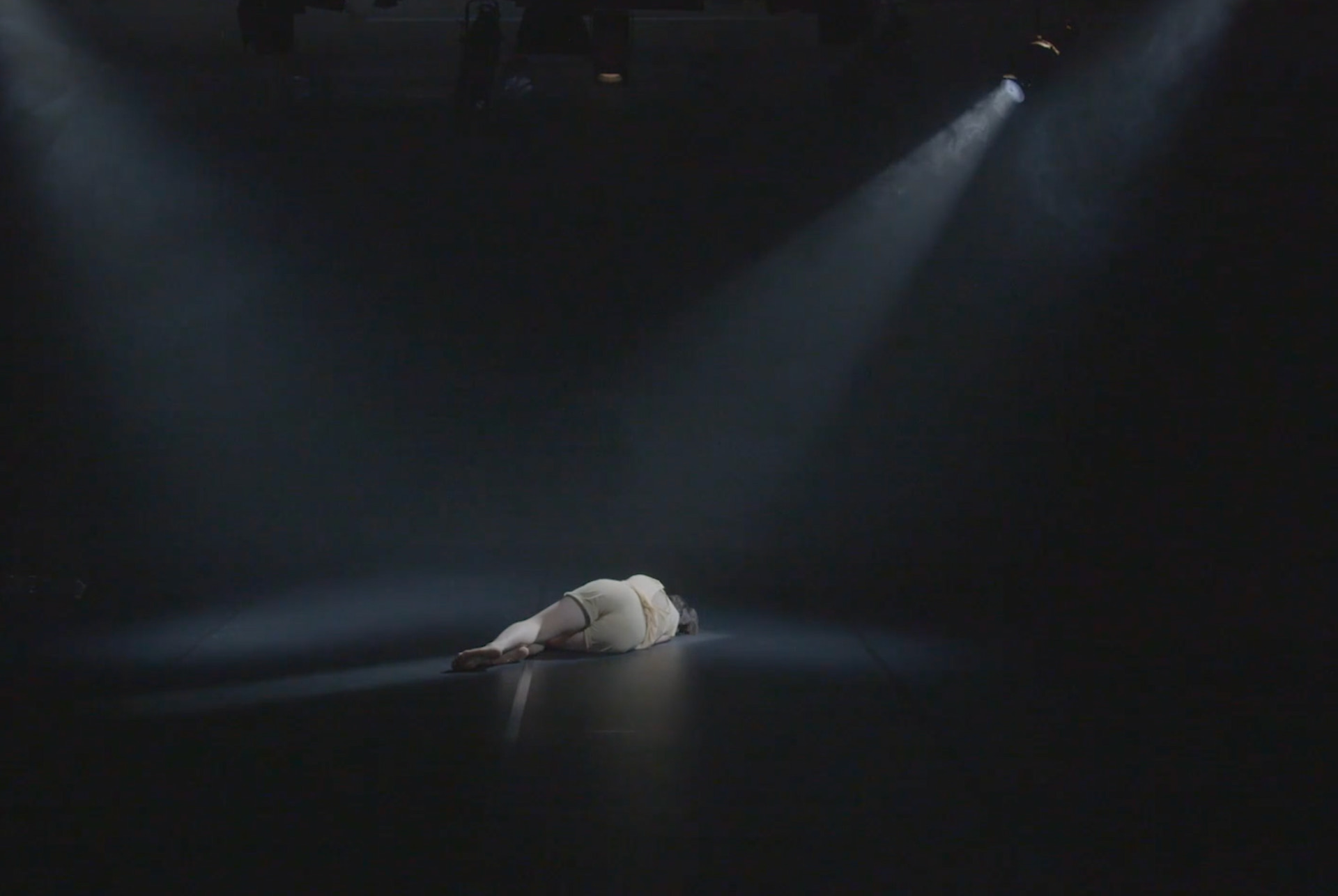
“I was seven years old, soon to be a hundred.“
-EXCERPT FROM LINGUA MATERNA
Lingua Materna
Written and Narrated by Tina Bikic
“I was seven years old, soon to be a hundred.”
So many hidden meanings in a sentence
which I could never translate for you,
precisely and
literally
as the poet imagined it.
